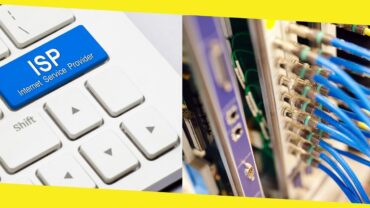Why Companies Are Focusing on Making Thin Laptops

The advancement of laptops has always been guided by the push for thinner, lighter, and more portable devices. These kinds of laptops are generally categorized as Notebooks or Ultrabooks, which weigh less than 3 pounds, with 14 inches or smaller displays, and enough battery capacity to last an entire day.
Makers have been focusing on increasing the supply of thin laptops, as the trend has been increasingly moving towards thinner and lighter devices. These laptops come with processors, memory, and storages that are soldered to the laptops, which makes it impossible to upgrade. If the consumer feels the need to upgrade, they will ultimately have to buy a new laptop, leading to an increase in the brand’s sales figures.
Additionally, the sealed cases of thin laptops make it difficult for consumers to replace the battery, keyboards, or even cracked screens, which again leads to the replacement of the laptop.
Contents
TogglePopular brands are now majorly focusing on thin laptops
Recently, Microsoft also launched a thinner model called Surface Pro 4, which is closer to a tablet. A lot of OEMs like Dell and Asus have taken their cue, and have decided to increase the competition in this department.
To increase the demand for ultrabooks, brands have introduced local stores, where you can book an appointment and get the best customer support, whereas in normal laptops, people don’t usually find such convenience, and are often deprived of customer support.
Enhanced security measures
To ensure security, brands are now offering systems built using Unix, which is a much more secure operating system than Microsoft Windows. The OEMs also claim that they have added different types of encryption and security features to make their ultrabooks more secure.
Brands believe that they can replace the normal laptops with the ultrabook models, and can compel customers to go for the expensive ones, and earn greater profits. Additionally, ultra-thin laptops come with MacOS (MacBook Air) or Windows OS, so consumers won’t have to worry about changing the operating system or switching the keyboard habits, and can easily switch to ultra-thin laptops.
The best laptops in India aren’t bulky or weigh over 2-3 kgs, but are featherweight. A few good examples are Apple MacBook Air 2020 with M1 chip, and Microsoft Surface Pro X models. The best laptops under 50000, on the other hand, are decent, lightweight and thin devices that pack 8GB RAM, and good HDD storage, or decent SSD storage.
One such example is Asus VivoBook X509JA-BQ840T, which comes with 15.6-inch Full HD screen, 8GB DDR4 RAM, 1TB HDD storage, and is powered by the Intel Core i5-1035G1 processor with 6MB Cache, clocking at 1.2GHz and with Turbo Boost up to 3.60GHz. These are best laptops for programming, and financially viable for most consumers, and perform various functions: from day-to-day work to editing/animating, and gaming. People working in different sectors have different needs. For example, the IT sector usually leans towards ultrabooks, as they require a portable device to carry, and since ultrabooks are secure, they don’t have to worry about their data being stolen.
Financing such electronics can be made easier, by using the Bajaj Finserv EMI Network Card. You can purchase your favourite laptop at No Cost EMIs, with flexible tenors ranging from 3-24 months. Bajaj Finserv has also partnered with over 1 lakh stores, which are spread across 1,900+ cities. The Bajaj Finserv EMI Network Card comes with a pre-approved loan of up to Rs. 4 lakh.
Recommended For You
7 Reasons How Internet Customer Service Can Lift Your ISP Business
Most Inside
Most Inside offers high-quality recommendations and valuable updates to enhance all aspects of your life, providing premium guidance and enriching experiences.




